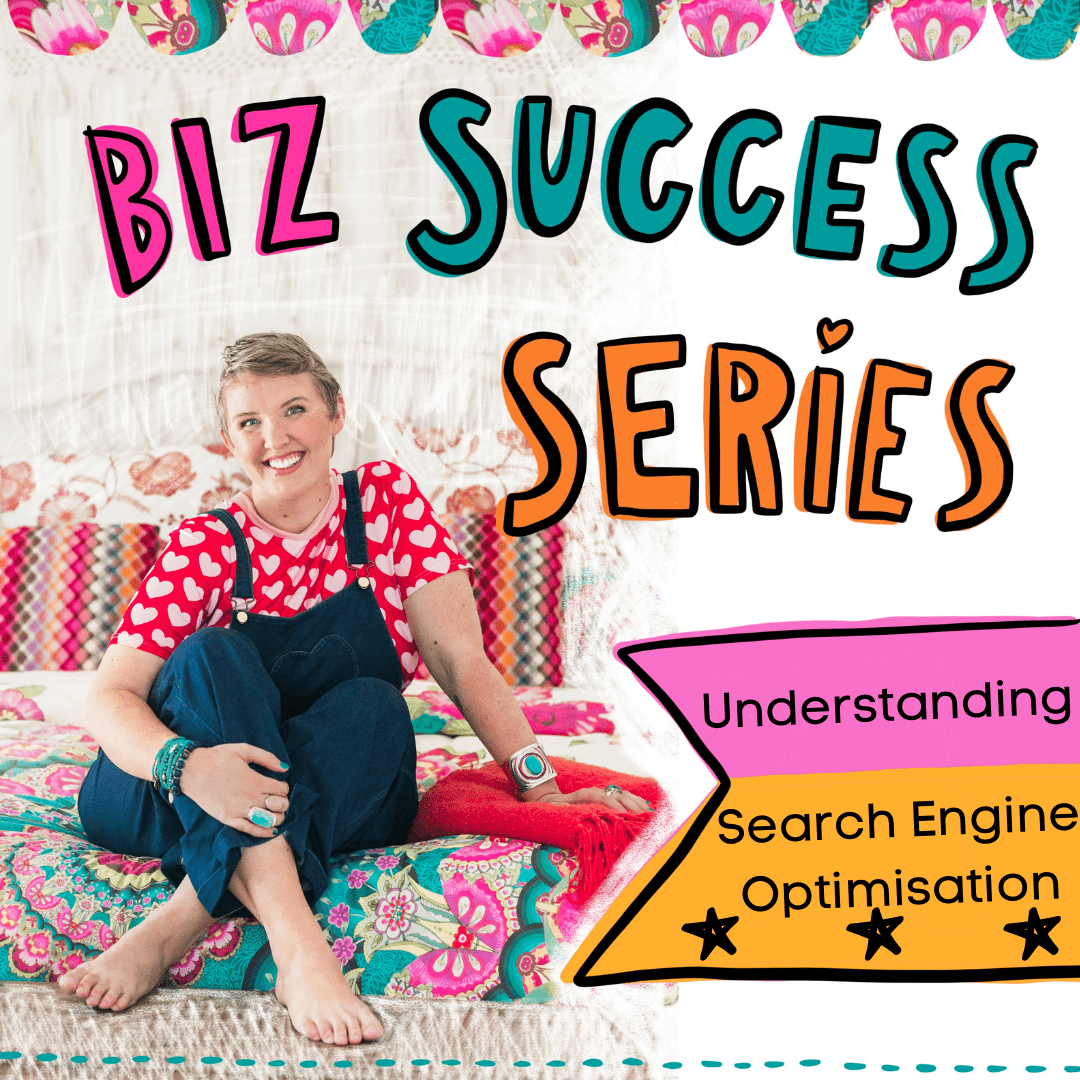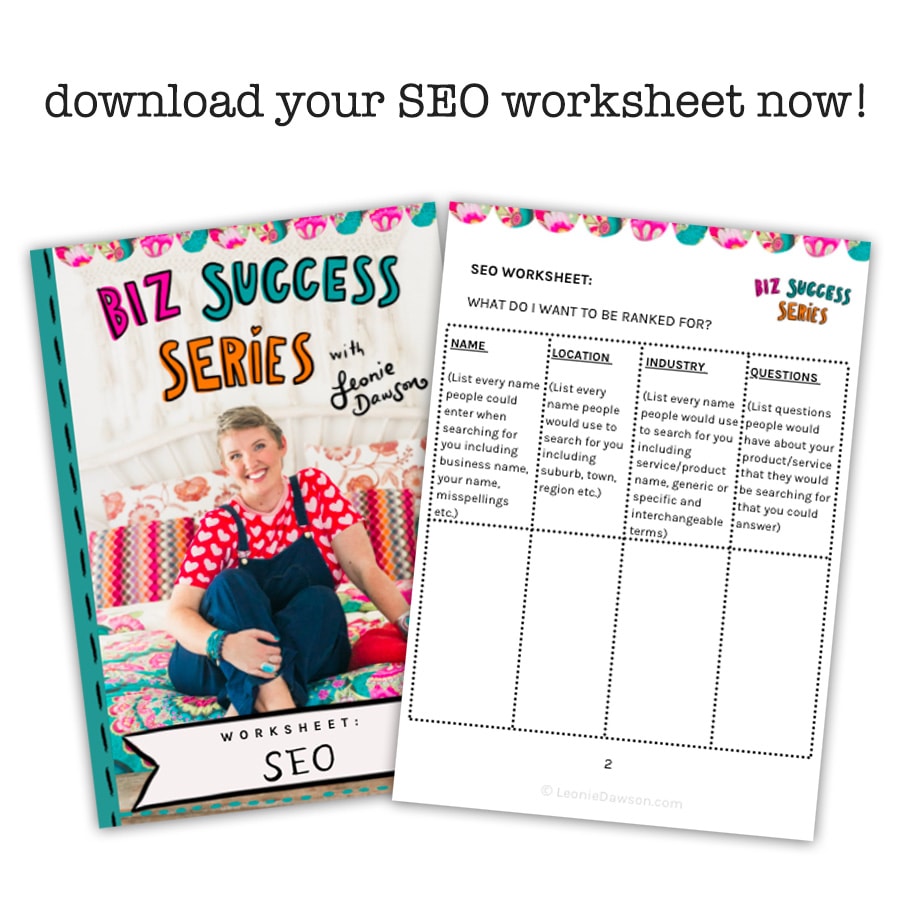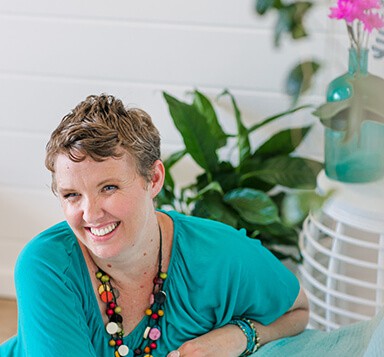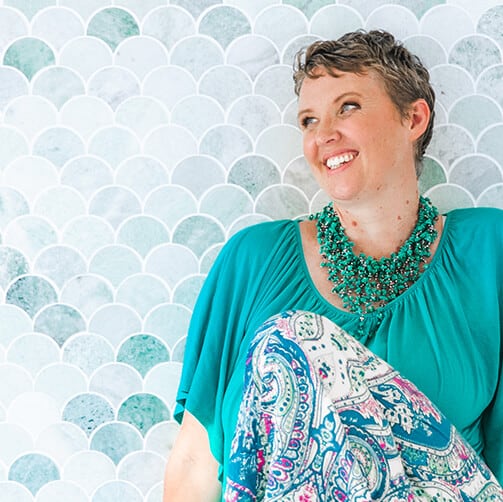
Possum Blossums!
Today we’re talking about SEO, or search engine optimisation.
Before we get started: are you up to date with the series so far?
- How to Work Out Your Ideal Client
- Online Networking & Masterminding
- How to Sell More with Blogging
- How to Grow a Mailing List
- Grow Your Biz Using Free Opt-Ins
Want to listen to the companion podcast for this post as you read?
Easyyyy babes! Just click play above, or subscribe via Apple Podcasts, Spotify, PocketCast (or wherever else you listen to podcasts!)

So! What’s the dealio about this SEO thing?
SEO is the process of making sure that your business ranks highly (i.e. on the first page of results, ideally within the first three results!) on search engines like Google.
It can be immensely helpful, especially for those of you with bricks and mortars businesses and product businesses. Often the first point of call for people searching for local businesses is using an online search engine. Local businesses really need to harness the power of that to make sure that they are getting in front of the people who want them now!
Even if you’re an online business, don’t be complacent about the power of SEO. What is your target market googling? What questions do they have? How can you answer them?
If you google any tarot card, I can pretty much guarantee my mate Brigit’s website will come up. She owns BiddyTarot.com and it receives over a million website hits each month from search traffic (!!!) Brigit has done an awesome job at using SEO to make sure she ranks highly for all tarot related questions, and her company is wildly successful and profitable because of it!
First stage of SEO success:
Decide what you want to rank for:
- You want your business to rank highly for things like: Your business name (this might sound basic, but it’s amazing how many businesses don’t do this!)
- If you are a local business, your service/product + location (including suburb, town and region). For example “Yoga Melbourne” or “Ashtanga Yoga VIC” or “Yoga classes South Yarra”.
- If you sell online for a specific country, you want to try and rank for search terms like “Soy candles Australia” or “soy candles .au”
- Brainstorm both specific and wide terms people might be asking.
- Brainstorm what interchangeable terms people might be searching for (i.e. “energy healing” “reiki” “reiki healing”)
- Brainstorm what questions people might be asking on Google about your industry/product that you can create a blog post around that answers it
Additional Tool To Help You Brainstorm:
Google’s free Keyword Planner tool can help you search for search terms. You can use this to:
- research how many people are interested in your niche
- see what other keywords they are searching for that you might want to target as well
- see if the keywords you want to target are highly competitive (i.e. harder to rank for) or lower (easier to rank for).
Want a handy dandy worksheet to help you really nail down your SEO?

Second stage: Get ranked!
Basic Tips To Get You Started:
- WordPress websites often can get a better ranking
- Use the Yoast WordPress SEO plugin
- Make sure that you have in your website title the things you most want to be ranked for (i.e. “Your Name/Business Name, Location, Industry)
- Name your pages and use headings (i.e. “<h1>” and “<h2>” in html) with words you most want to be ranked for
- Create blog posts with titles that address exactly the questions people would have about your product or service.
SEO is a strange science. But it is doable, and learnable, just like everything else in business and life. Don’t get overwhelmed by it – just decide to implement what you can step-by-step.
How I’ve Used SEO In My Own Businesses:
Early on in my business evolutions, I decided I wanted to rank highly for “goddess” as it was part of my branding and target market. It was a fairly competitive word to aim for, so I only ended up being able to reach the top of the second page, or on a really good day the bottom of the first page. I also had secondary words (i.e. “goddess art” and “goddess meditations”) that I worked hard to rank highly in SEO. And I tried to rank for my location for the events I ran. I read a couple of SEO books, read blog articles about SEO, implemented and tested. I also got an SEO report done on my website with tips on how to rank higher.
Here’s how I currently use SEO in my business (aka: steal my tips!):
- I make sure that I rank highly for my own name and product names.
- I write blog posts with my target audience in mind, and title them with questions they may be searching for.
- I regularly look over my Google analytics (a free resource that helps you track how many visitors your website is getting and where they are going to) to see which posts and pages are getting the most amount of traffic.
And here’s my handy hint – every six months, check which ones are popular. And make sure you keep your top posts that pull search traffic current. Check over them to see if there’s anything that needs updating, and use them to funnel readers to your mailing list or your products.
So there you have it!
SEO is an excellent tool to add your kit! It will serve you for years and years to come.
It still surprises me, nearly two decades into this blogging gig, what posts end up being the most popular, which ones rank highly for search terms and attract a lot of search traffic. For example, some of my most visited blog posts over the past year have been ones I wrote several years back. Why? They have great titles, well written headings, and have managed to land on the top of search results for web searches. By building up a library of well-written articles, you’re creating traffic that will continue for years to come.
Big love,

FREE GOODIES:
- Newsletter with absoloodely everything I create
- Weekly love letters
- Podcast: Leonie Dawson Refuses To Be Categorised
- A library of free treasures
BOOKS:
- Goal Getter workbooks for 2022 & beyond!
- Calm Christmas Planner
- Salt: a hottttt romance novella (published under my pen name Lola Leigh)
COURSES:











